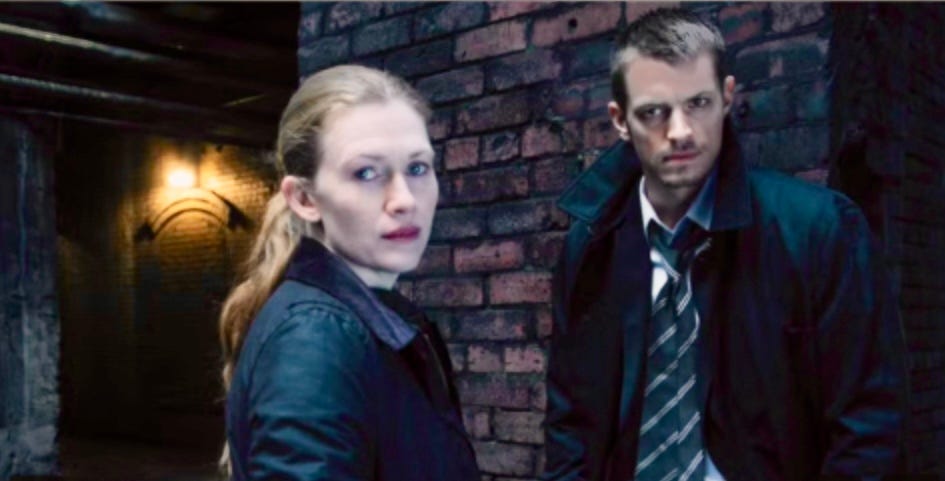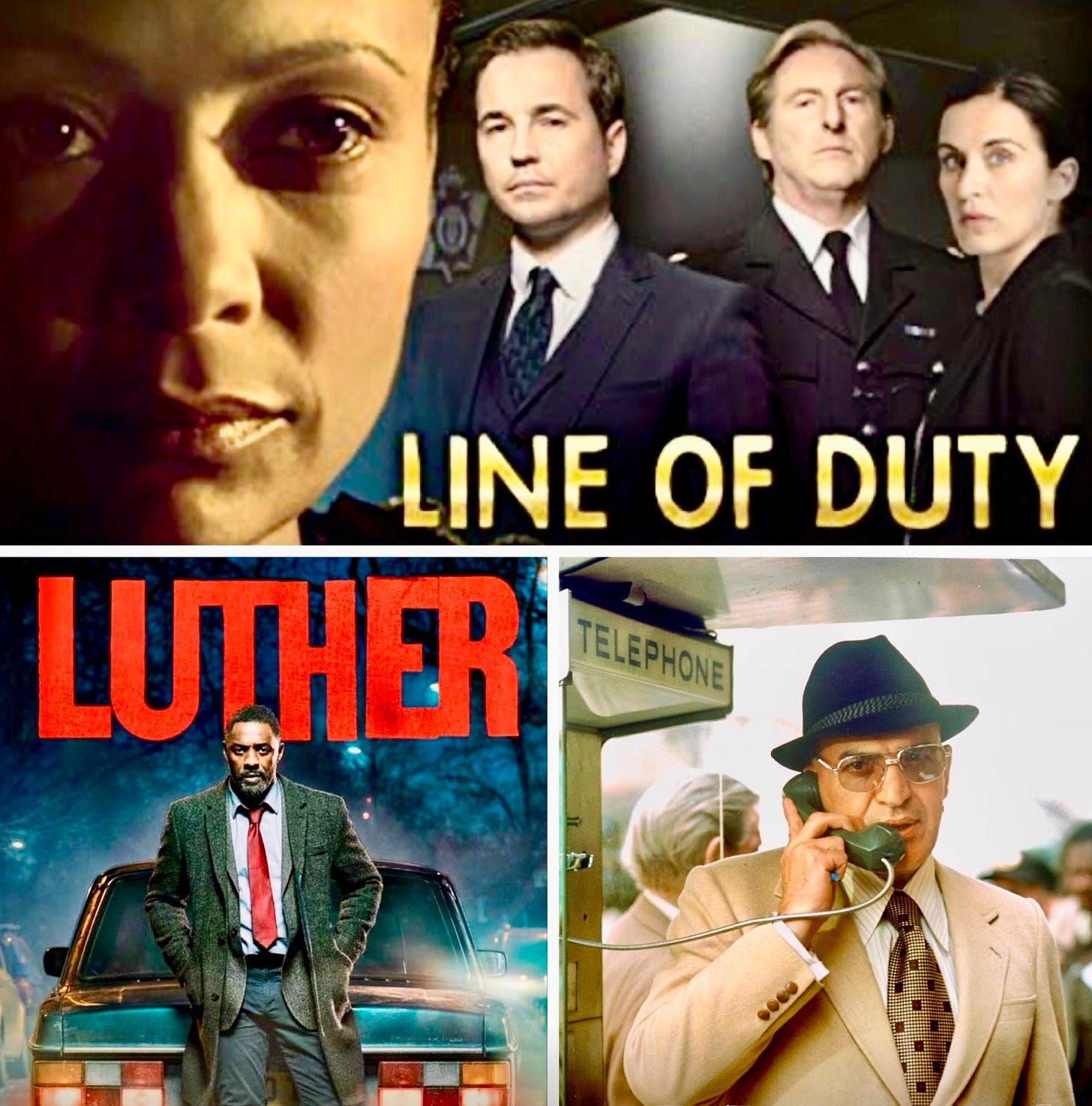“I let my coffee run cold and thought about detectives. Partners depend on one another’s eyes. The one says, tell me what you see. His partner must speak assuredly, not leaving anything out. But a writer has no partner. He has to step back and ask himself -- tell me what you see.”
---Patti Smith, M Train

Patti and I share a love for watching crime dramas and police procedurals on TV. I sometimes wonder why I like these kinds of shows so much. I don’t have any cops or detectives in my family. No criminals either, for that matter. And, blessedly, no victims, that I know of. I think it’s mainly the puzzle of the story that’s so arresting (no pun intended) and the triumph of good over evil after a long, hard struggle. Perseverance is sexy. Strength is sexy. Intelligence and cleverness is everything. If all of that culminates in protecting and avenging the public, well. What’s more super hero than that? Especially when they do it all despite their own frailties and faults. Who needs freaking cartoon characters when real humans are out there doing the hard work no one else will do.
But, really, it’s the story itself and the figuring out and the didn’t see it coming and the actual skill of the storyteller. Collecting possible clues, looking at all the angles, anticipating possible scenarios are all things that put the minds of the audience to work. We are not passive onlookers, we are participants in the puzzle. We see what the detective sees, sometimes we see through the eyes of the victim or criminal. Observation is a key skill for a writer and a detective. In fact, I’d say a writer is a detective whether they write crime fiction or poetry or essays. It’s all about observation.
I say in my Substack tagline that I am “Writer, reader, observer, New Orleanian.” I think observer is the most important of all. When you closely observe people, cultures, situations outside yourself, it makes you a better, more skilled, more empathetic writer and human.
I trust myself. I trust what I see with my own eyes, hear with my own ears, believe with my whole heart. There were times in my life I was told I was dumb, I was lazy, I was bad. But I didn’t believe it because I knew myself and my heart. I don’t say this to imply I’m better or smarter than others, only to encourage others to believe and trust in themselves, too. You must believe in yourself without reservation. That’s my advice as a writer and a human being in a tough world. No one else can give you that, you have to give it to yourself.
Writing and submitting your words to the world is a vulnerability that can be scary. I see writers talking about it all the time. This is what I’ve learned from my personal writing efforts and submitting experience with litmags:
When I feel ambivalent about a piece, I have 2-3 writers I trust who give constructive feedback and encouragement that helps to clarify my thoughts and storyline. Because I write for myself, there have been examples when bits aren’t clear for readers. A writing buddy is a big help in this regard.
I’ve learned that too many differing opinions can muddy a story/poem/essay. I feel trying to incorporate multiple ideas and suggestions from others into my work results in something that’s no longer mine. It’s a collaboration.
From The Killing:
Linden: Did anyone ever tell you to write a book?
Holder: I did. It’s called How to be Me.
I’ve learned I can’t please everyone and I don’t believe I must. Litmag acceptances and rejections are the opinions of a very few people in addition to their vision toward creating a cohesive issue. It’s all subjective and not a judgement of my work.
I focus on journals and magazines that publish work I like to read and submit to them. When I stray outside my aesthetic it rarely works out. (But don’t be afraid to try!)
I read craft books and articles by other writers, both emerging and established, to mine nuggets I can actually use. Here are recent pieces that benefitted me:
Hello Stranger: Speculating on the Unknown, A Writing Prompt by Neema Avashia, author of Another Appalachia: Coming Up Queer and Indian in a Mountain Place
A Crack, A Dog, and a Bowl - Writing the Mosaic Essay by Katie Rose Pryal, author of Even if You’re Broken: Bodies, Boundaries, and Mental Health
Story Basic’s #1 by Brandon Taylor, author of The Late Americans (first installment in a series to be continued - get on that!)
In the end, trust yourself. Trust your voice. Use what works for you, disregard the rest (with thanks when appropriate.)
Never stop observing.





“ I’d say a writer is a detective whether they write crime fiction or poetry or essays. It’s all about observation.”—> So perfectly stated! Amen. I’m glad you learned to believe in yourself, and what a great thing you’re passing along to others to do the same. Love the post. DS
So true about compiling cohesive stories for a lit mag issue. Thanks for the lit links!